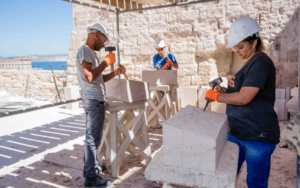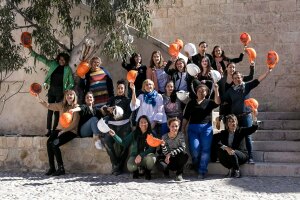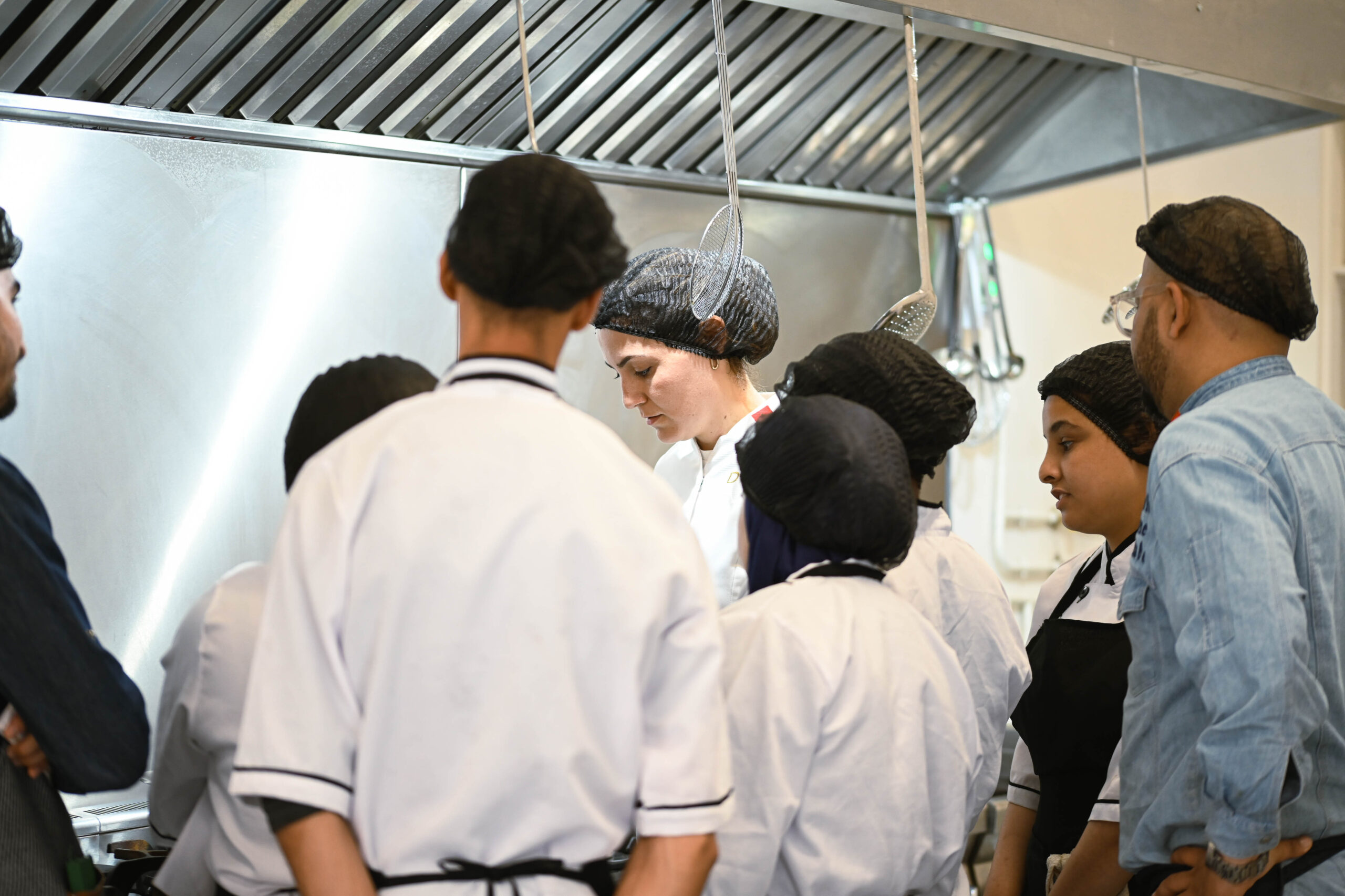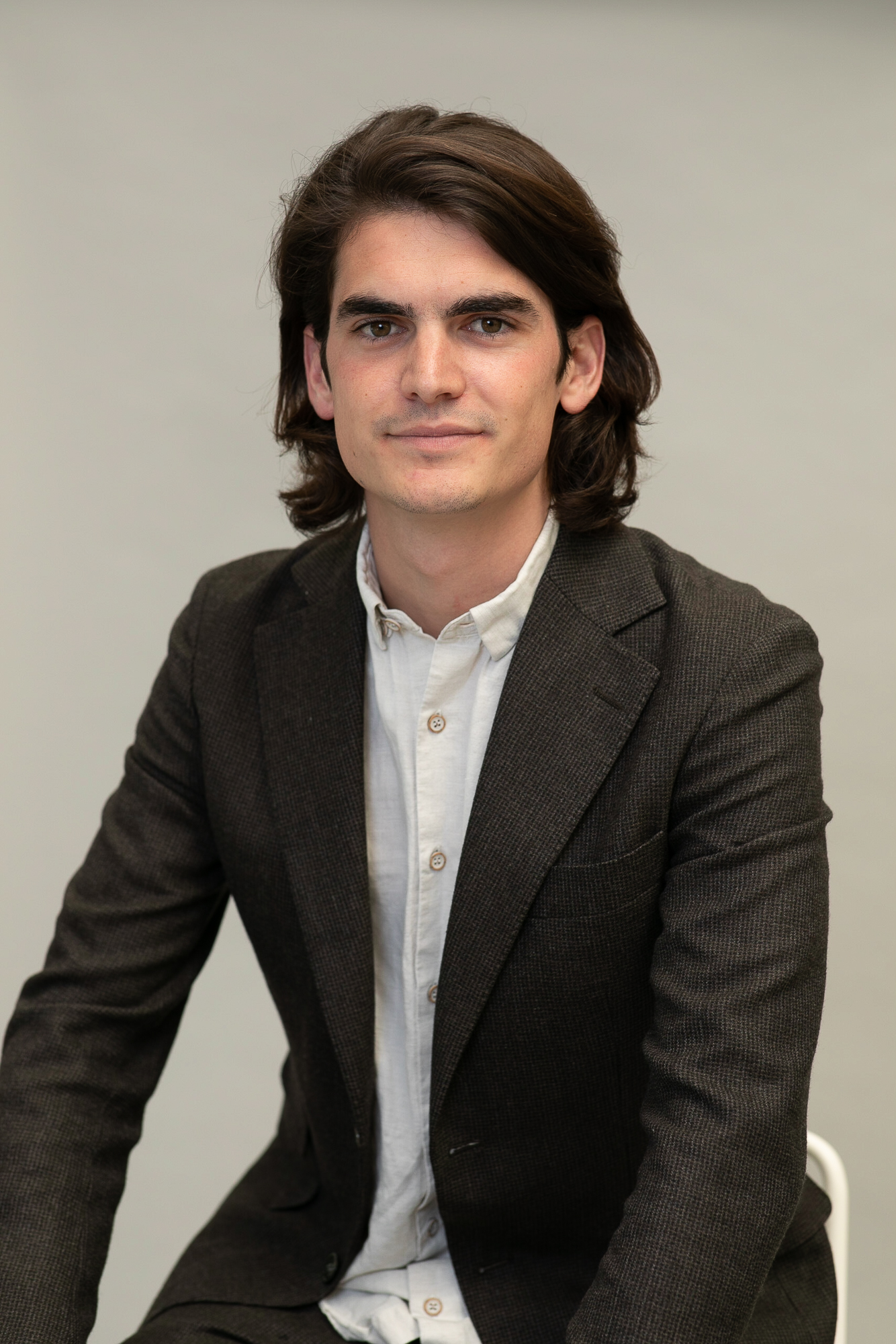During the conference, several key themes were explored:
1. Social inclusion and employability through training: Heritage restoration training plays a critical role in providing professional opportunities to those distant from the job market. French partners ACTA VISTA and BAO Formation presented their respective models. ACTA VISTA offers social reintegration programmes for individuals in precarious situations through heritage restoration projects, while BAO Formation provides certified training in masonry and traditional construction for disadvantaged groups.
2. Transmission of traditional skills: Preserving local skills and knowledge is essential for authentic heritage restoration. In Greece, Boulouki works to safeguard artisanal techniques by passing them on to younger generations of architects and engineers. In Croatia, Dragodid focuses on preserving the dry-stone construction tradition through volunteer workshops and events for practitioners and researchers.
3. Reducing carbon footprints and promoting ecological practices: The construction sector, including heritage restoration, contributes significantly to carbon emissions. The HERO project highlights restoration practices aimed at minimising environmental impact, fostering more sustainable construction methods.





